Korean Studies Research Hub
The KSRH is an inter-disciplinary virtual hub for collaborative research on Korean Studies at the University of Melbourne.
About the Korea Hub
The Korean Studies Research Hub (a.k.a. Korea Hub) is an inter-disciplinary virtual hub for collaborative research and networks on Korea at the University of Melbourne. Established in December 2020 with generous funding from the Academy of Korean Studies, the Korea Hub is designed to promote local and international collaborations on contemporary Korean affairs and Australia-Korea relations. Our activities include undertaking team-based research projects, hosting high-profile speakers and visiting scholars, running seminar series and workshops, and fostering graduate research.
Acting as a central venue within the University for Korea-related engagement, the Korea Hub is dedicated to enhancing the public profile of world-class researchers in arts and social sciences, business, visual art and engineering at the University of Melbourne, pursuing innovative high-impact research and building international partnerships. The Korea Hub welcomes students, early career researchers and practitioners who work on Korea-related subjects through the following programmes:
- PhD supervision and career mentorship
- Scholarships for graduate research
- Korean Studies Seminar Series and Annual Graduate Workshops
- Regular K-film nights and K-Book Club
- Korean Collection at the University Library
The Korean Studies Research Hub (KSRH) acknowledges the Wurundjeri and Boonwurrung Peoples of the Kulin Nation as the traditional owners of the unceded land on which the University stands, and pay respect to Elders past, present, and emerging.
Our researchers, working together across multiple Schools and Institutes at the University, have expertise in the areas of Korean migration to Australia, Korea-Australia relations, media and communication, business, urban planning, science, and culture.
Researchers
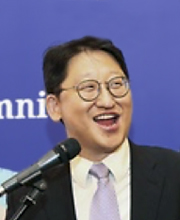
Dr Daejeong Choi, Associate Professor in Management
Daejeong is an Associate Professor in the Department of Management and Marketing. He conducts research on human resource management systems, employee behaviours and outcomes, and work team leadership. Daejeong is developing a research project on global mobilities, focussing on Korean Australian immigrant workers, expatriates, and second-generation Korean Australians. More information
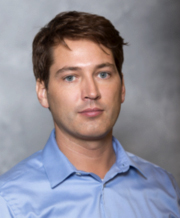
Dr Jonathan Glade, Lecturer in Korean and Japanese Studies
Jonathan is a Lecturer in Korean and Japanese Studies at the Asia Institute. Jonathan’s research focuses on Korean culture from regional and global perspectives. His current research project looks at the globalisation of Korean and Japanese food and the ways in which food intersects with notions of nation and identity. Jonathan coordinates the class “Global Cultures of Japan and Korea,” which explores Korean culture’s global spread and impact. More information
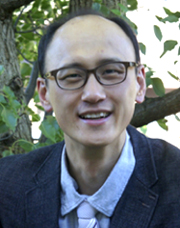
Dr Hyungmin Kim, Senior Lecturer in Urban Planning
Hyung Min is a Senior Lecturer in Urban Planning, Faculty of Architecture, Building and Planning. His research focuses on the economic and spatial dynamics of cities, investigating the urban implications of global activities such as Foreign Direct Investment, international students, and international real estate investment. His research pays attention to globalisation of Korean urban development, South and North Korean cities, and Korean outward investment. More information
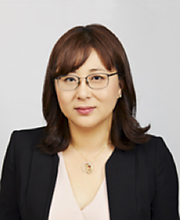
Dr Wonsun Shin, Associate Professor in Media and Communications
Wonsun is a Associate Professor in Media and Communications, in the School of Culture and Communications. Wonsun’s research looks at young peoples’ engagements with digital media, privacy management, and parental mediation. She also conducts research on digital media use in advertising and its impacts on consumers. Wonsun is working on research projects investigating digital media use by Asian-Australians during COVID-19 and Korean consumers’ privacy concerns in dealing with online advertisers, and has extensive expertise in quantitative research methods. More information

Dr Richard Sandberg, Professor in Computational Mechanics
Richard is Chair Professor of Computational Mechanics in the Department of Mechanical Engineering and an ARC Future Fellow. He is also the lead for the Power Generation and Transport program of the Melbourne Energy Institute. He conducts industry-focused research on gas turbines for electricity generation and aircraft propulsion with the focus on both reducing emissions from current technologies and on developing new solutions that help enable the transition to sustainable fuels, like hydrogen. He collaborates with Korean researchers on gas turbine research and is keen to also develop industry partnerships in Korea. More information
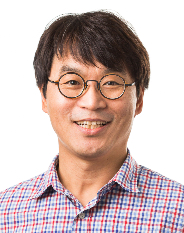
Dr Dongryeol Ryu, Professor in Infrastructure Engineering
Dongryeol Ryu is a Professor in the Department of Infrastructure Engineering, The University of Melbourne, Australia. He currently leads the Environmental Hydrology and Water Resources Group. His research is specialized in remote sensing of land surface and the roles of land surface changes in hydroclimate processes. He works closely with the Korea Aerospace Research Institute (KARI) and other various institution of Korea on the innovation use of remote sensing for Earth and environmental monitoring. Dongryeol received Ph.D. degree in Earth System Science from University of California, Irvine in 2006, and the B.S. and M.S. degrees in Geological Sciences from Seoul National University, Korea. More information

Dr Nicola Fraschini, Senior Lecturer in Korean Language
Nicola is Senior Lecturer in Korean Studies at the Asia Institute. His research area is Korean language teaching, and his projects investigate the psychology of language learning, such as the role of teachers’ and learners’ motivation and emotions in instructed Korean language education. Nicola is also active in writing and publishing learning material for Korean language students.

Dr Sin Ji Jung, Lecturer in Korean Language
Sin Ji is a lecturer in Korean Studies at the Asia Institute. Her research focuses on heritage language acquisition and bilingualism and it extends to Korean linguistics and learning Korean as a second or heritage language. Sin Ji is currently investigating the language maintenance and shift of the Korean ethnolinguistic community in Australia using Australian Censuses. She is also looking into sociolinguistic aspects that influence the acquisition and maintenance of the Korean language in children of Korean immigrant families in Australia.
Visitors
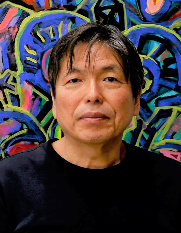
Jaedon Shin, Artist in Residence
Jaedon Shin was born in Korea and migrated to Australia. He graduated Fine Art at RMIT University in 2011 and is currently Melbourne based. Through his practice Jaedon contemplates inter and trans cultural experiences-interrogating his dual identity as a Korean and Australian subject and the enduring impression of his upbringing in Korea-a divided nation, where each side of the country lives in apprehension, fear and longing for the other–combined with the experience of being a migrant in Australia. Jaedon explores narratives that are often highly personal and critical in nature and that reveal a desire for human connection, identity and belonging.
Students
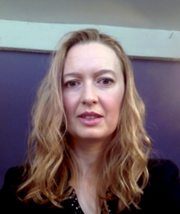
Ms Jasmine Barrett, PhD Candidate
Jasmine is an AKS PhD candidate at the Asia Institute. Her research focuses on the development of the disability sector in the Democratic People’s Republic of Korea (DPRK). Her dissertation is tentatively titled, “Disability in the DPRK: Identity, social inclusion, and changing perceptions of disability”. Prior to joining the Asia Institute, Jasmine was an entrepreneur partnering with the Korean Federation for the Protection of the Disabled to create employment for people with disability in the DPRK.
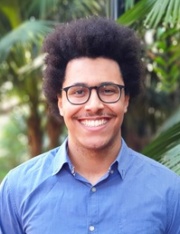
Mr Theo Mendez, PhD Candidate
Theo is a PhD candidate at the University of Melbourne. His research is broadly situated within international political economy, analysing the role of geopolitics in changing the dynamics of strategic global production networks, including those for batteries, semiconductors, and defence technologies. His thesis investigates the influence of the United States in driving these shifts, and the way that smaller countries in the Indo-Pacific, specifically Australia, South Korea, and the Philippines, have responded. Before joining the University of Melbourne, Theo received a BCom and BA(Hons) from the University of Western Australia in Economics and Asian Studies.
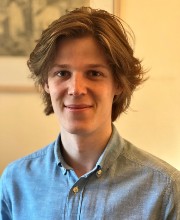
Mr Spencer Hines, PhD Candidate
Spencer is a PhD candidate in Screen and Cultural Studies at the School of Culture and Communication. His thesis centres on the films and creative practice of South Korean filmmaker Hong Sang-soo. Investigating the creative principles and methodologies observed in the films’ production, Spencer’s research gestures toward a broader focus on the history of film and the creative arts within the Korean context. Spencer has also completed a Graduate Certificate focussing on Korean Studies at the University of Melbourne.
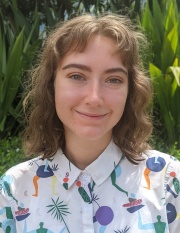
Lulu Spencer, PhD Candidate
Lulu is a PhD student at the Asia Institute. Lulu's thesis focuses on uncovering the stories of migration from Korea to Australia from the mid-19th century to 1945. Lulu has been a research assistant at the Korea Hub since 2021. As a politics student at the University of Melbourne, they completed an honours thesis on identity in Korea-Japan relations in 2020. Lulu has obtained a graduate certificate in Public Policy from the Australian National University and plans to continue to explore these areas of interest in the field of Korean Studies.
The Korean Studies Research Hub (KSRH) supports multiple research projects on the following three themes: Korean migration to Australia: North Korea; and Australia-Korea Relations.
Current Projects: 2020-2023
The Korea Hub would like to acknowledge funding from the following institutions:
- Academy of Korean Studies under the South Korean Ministry of Education (Seed Grant 2020-2023, AKS-2019-INC-223000X and Lab Grant 2022-2025);
- Australian Research Council Discovery Project (2022-2024, DP220103223)
- Korea Foundation (Policy-Oriented Research Grant 2022-2023)
- Australia Korea Foundation under the Australian Department of Foreign Affairs and Trade (2021-2023, AKF2020117)
Global Korean Migration
The Korean Australian Project is the Korea Hub’s flagship research and a cross-faculty collaborative project, led by Dr Jay Song at the Asia Institute (AI) of the Faculty of Arts. Current members include Dr Wonsun Shin (School of Culture and Communication) and Dr Daejeong Choi (Melbourne Business School). The Project launched its first comprehensive survey of Korean Australians in 2021 to mark the 60th anniversary of the diplomatic relations between Australia and South Korea. The Korean Australian Survey takes place every two years to understand motivations, routes and social networks of migration from Korea, as well as their media use, inter-generational communications and life satisfaction in Australia. The Project is funded by the Academy of Korean Studies and the Australia Korea Foundation.
The Project has received additional funding from the Australian Research Council in 2022 to carry out archival research on early Korean immigrants since the late 19th century. Ms Louise Spencer (PhD students, AI) and Ms Jun Kim (Honours student, AI) join the Project to pursue their independent research on early Korean Australians.
The team welcomes collaboration with museums, Korean resident associations, language schools, student associations, adoptee networks, working holiday makers and the like.
North Korea
The Korea Hub's second main research theme is North Korea. Researchers discuss key conceptual and methodological issues in studying North Korea in collaboration with North Korea experts in South Korea and beyond. The team hosts regular workshops with graduate students and early career researchers in North Korean Studies in Asia, Europe and North America.
Dr Jay Song has won several Chancellery and Faculty research grants to run collective projects on ‘North Korea as a method’ and ‘everyday lives in North Korea’. Ms Jasmine Barrett (PhD student, AI) is undertaking independent research on disabilities in North Korea. The team welcomes post-doctoral fellowships, academic visitors and international collaboration on North Korean human rights, human security and migration.
Australia-Korea Relations
The third main research theme of the Korea Hub is Australia-Korea relations. Australia and South Korea have had diplomatic relations since 1961. The two countries have many common interests in security and trades. Yet, people-to-people relations on migration, energy/environment, food/agriculture, and media/education have been relatively under-studied areas.
The Korea Hub has received further funding from the Korea Foundation to conduct policy-oriented research on people-centric bilateral relations: the Korea-Australia Relations Project, KARP. The team hosted Dr Jeffery Robertson from Yonsei University as Visiting Fellow in 2021-2022. Dr Peter Lee joined the team in 2022 to lead a series of policy roundtables in collaboration with various experts and practitioners on the ground in both countries. Mr Theo Mendez also joined the team in 2022 to conduct independent research on Australia Korea relations on clean energy. In 2022, the Australian Korean Business Council has recognised the Research Excellency of Korean Studies at the University of Melbourne. The Korea Hub welcomes applications for PhD research or externally funded fellowships on people-centric Australia-Korea relations.
In addition to other special events and publications, the Korean Studies Research Hub runs a regular Korean Studies seminar series during semester, inviting distinguished speakers on Korean affairs.
Korean Studies Seminar Series
KSRH Newsletter

The Korean Studies Research Hub publishes a biennial newsletter outlining the Hub's recent activities, member publications, and stakeholder engagement. Newsletter issues can be downloaded below.
Current Issue
January 2023 (3.0MB)
Past Issues
July 2022 (2.4MB)
Members of the Korean Studies Research Hub publish their work in a wide variety of world-class journals and with a broad range of publishers.
Reports 2023

Lee, Peter. (2023). Expanding Australia-Korea People-to-People Exchanges. Korea-Australia Relations Project. (4.5mb)
Across 2022 and 2023 The Korea-Australia Relations Project (KARP) at the University of Melbourne’s Asia Institute sought to enhance the Korea-Australia relationship with a particular focus on people-to-people links. The Korea Foundation-funded project encompassed a range of activities and events including roundtables, distinguished lectures, media commentary, and academic and policy publications.
The project's final report fills an important gap in the policy literature on the Australia-Korea relationship by examining the dynamics that shape closer P2P cooperation across a range of fields. In doing this, the report makes five key findings:
- People-to-people categories should be broadened to combat a narrow understanding of this concept by both governments
- Social license should be at the forefront of bilateral projects in order to ensure public support and community trust
- Sister city relationships could be revamped; they currently represent under-utilised springboards for people-to-people cooperation
- Bureaucratic over-regulation must be streamlined in order to foster long-term commitments by Australians to Korea and vice-versa
- Smaller but more numerous high-quality pilot projects are needed which increase the visibility and practicality of the bilateral relationship
Download the report here (4.5mb).
Books 2022
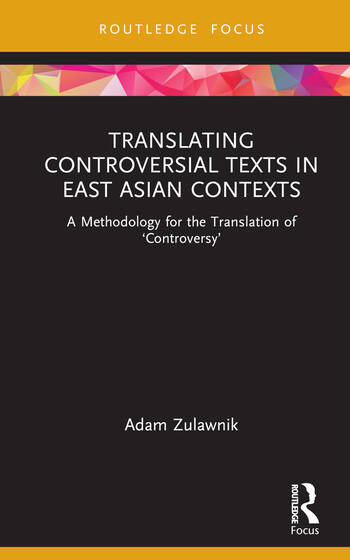
Zulawnik, A. (2022). Translating Controversial Texts in East Asian Contexts: A Methodology for the Translation of 'Controversy'. Routledge.
Zulawnik focuses on the broad concept of ‘controversy’ and issues pertaining to the translation of politically and historically controversial texts in East Asia.
The research methodology is exemplified through a case study in the form of the author’s translation of the best-selling Japanese graphic novel (manga) Manga Kenkanryū (Hate Hallyu: The Comic) by Sharin Yamano (2005), a work that has been problematised as an attack on South Korean culture and the Korean Wave. Issues analysed and discussed in the research include translation risk, ethics, a detailed methodology for the translation of so-called controversial texts exemplified through numerous thematically divided examples from the translation of the chosen Japanese text, as well as examples from a Korean language equivalent (Manhwa Hyeomillyu – Hate Japanese Wave), and definition and contextualisation of the concept of ‘controversy’. There has been limited research in the field of translation studies, which seeks to exemplify potential pragmatic approaches for the translation of politically-charged texts, particularly in multi-modal texts such as the graphic novel.
It is hoped that Zulawnik’s research will serve both as a valuable source when examining South Korea–Japan relations and a theoretical and methodological base for further research and the development of an online augmented translation space with devices specifically suited for the translation of multi-modal texts such as – but not limited to – graphic novels and visual encyclopaedias.
Journal Articles 2022
- Barrett, J. (2022, July 7). Fortress North Korea and the battle against COVID-19. Melbourne Asia Review No. 11.
- Glade, J. (2022). Decolonizing Literature: Bridging Political Divides in US-Occupied Southern Korea, 1945–1948. In H. Cho (Ed.), The Routledge Companion to Korean Literature. Routledge.
- Kim, H. M. (2022). International real estate investments: issues and research agendas. In P. Tiwari & J. T. Miao (Eds.), A Research Agenda for Real Estate (pp. 203-223). UK: Edward Elgar Publishing Ltd.
- Kim, H. M., & Han, G. (forthcoming). Schools as ‘sacred enclaves’ or ‘community hubs’? South Korean experiences. In I. McShane (Ed.), Schools as Community Hubs. Springer.
- Lee, P. (2022). Rethinking Australia-Korea strategic cooperation: a middle power perspective. In Remy Davison and George Nikolaidis (eds.), Australia and Korea: Building a Secure and Prosperous Asia. Monash University Policy Brief.
- Mendez, T. (Forthcoming). Growing Green? South Korea’s Approach to the COVID-19 Economic Recovery. Melbourne Asia Review No. 11.
- Lwin, M.O., Sheldenkar, A., Lu, J., Schulz, P. J., Shin, W., Panchapakesan, C., Gupta, R. K., & Yang, Y. (2022). The evolution of public sentiments during the COVID-19 pandemic: Case comparisons of India, Singapore, South Korea, the United Kingdom, and the United States. JMIR Infodemiology, 2(1). doi: http://doi.org/10.2196/31473.
- Olsen, J. E., Gahan, P., Adamovic, M., Choi, D., Harley, B., Healy, J., & Theilaker, M. (2022). When the minority rules: Leveraging difference while congruence for cultural minority senior leaders. Journal of International Management, 28, 10886,
- Robertson, J. (2022). Middle Powers and North Korea revisited. International Journal of Korean Unification Studies, 31(1) (forthcoming).
- Ryu, K.-M., & Kim, H. M. (2021). Rent-Seeking by Rent Concession: An Analysis of Rent-Free Periods in the Seoul Office Market. International Real Estate Review, 24(4), 633-658.
- Song, J. (2022). In the making of a New South Korean Nationalism. S/N Korean Humanities, 7(2), 14-48.
- Song, J. (2022). Civil and uncivil North Korean society in South Korea. In A. Spires & A. Ogawa (Eds.), Authoritarianism and Civil Society in Asia. London: Routledge.
- Song, J. (2022). Politics of Gender in South Korea, Korea Bulletin No.2, Korea Centre, East Asia Institute, National University of Singapore.
Books 2021
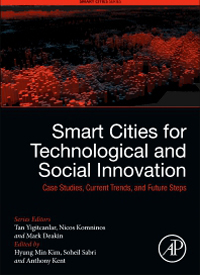
Kim, H. M., Sabri, S. and Kent, A. (eds.,). Smart Cities for Technological and Social Innovation (1st ed.). London; San Diego; Cambridge; Oxford: Academic Press, 2021
Smart Cities for Technological and Social Innovation establishes a key theoretical framework to understand the implementation and development of smart cities as innovation drivers, in terms of lasting impacts on productivity, livability and sustainability of specific initiatives. This framework is based on empirical analysis of 12 case studies, including pioneer projects from Europe, Asia, the Middle East, and more. It explores how successful smart cities initiatives nurture both technological and social innovation using a combination of regulatory governance and private agency.
Journal articles 2021
- Kim, H. M. (forthcoming 2021). “Foreign Direct Investment, enclaves and liveability: A case study of Korean activities in Hanoi, Vietnam,” in International Development Planning Review
- Choi, J. and Kim, H. M. (2021). “State-of-the-art of Korean Smart Cities: A critical review of the Sejong Smart City Plan,” in H. M. Kim, S. Sabri and A. Kent (eds.,). Smart Cities for Technological and Social Innovation (1st ed.). London; San Diego; Cambridge; Oxford: Academic Press, pp. 51-72
- Gustafsson, R. (2021). “Korean Transnational Adoption to Australia: ‘Quiet’ Migrants, Diaspora, and ‘Hometactics’,” in Melbourne Asia Review 5
- Gustafsson, R. (2021). “Theorizing Korean Transracial Adoptee Experiences: Ambiguity, Substitutability, and Racial Embodiment,” in International Journal of Cultural Studies 24(2), pp. 309-324
- Han, B., Yang, M., and Gustafsson, R. (2021). “The Social Exclusion of Child-Rearing Unwed Mothers in South Korea,” in Liamputtong, P. (ed.,). Handbook of Social Exclusion. Cham, Switzerland: Springer
- Kim, H. M., Miao, J. and Phelps, N. (2021). “International Urban Development Leadership: Singapore, China and South Korea Compared,” in S. H. Park, H. B. Shin and H. S. Kang (eds.,). Exporting Urban Korea? Reconsidering the Korean Urban Development Experience (1st ed.), Oxon; New York: Routledge, pp. 131-146
- Song, J. (forthcoming 2021). “From North to South Korea: co-ethnic communications, identity transformation and unification,” in Oxford Encyclopedia of Race, Ethnicity and Communication
- Song, J. (forthcoming 2021). “In the making of a new South Korean nationalism,” in S/N Korean Humanities
- Song, J. (forthcoming 2021). “North Korea as a method,” in Journal of Korean Studies
- Lee, H. and Song, J. (2021). “State-society relations in a pandemic: an Asian Australian perspective,” in Melbourne Asia Review 5.
- Shin, W. and Song, J. (2021). “What our survey found about effective COVID-19 communications in Asian Australian communities,” in Melbourne Asia Review 5
Journal articles 2020
- Glade, J. (2020). “Fracturing Literary Boundaries: Connecting with the Korean Peninsula in Postwar Japan,” in Yang, Y. S. (ed.,). Routledge Handbook of Modern Korean Literature (1st ed.) Routledge, pp. 116-127
- Gustafsson, R. (2020). “Theorizing Korean Transracial Adoptee Experiences: Ambiguity, Substitutability, and Racial Embodiment,” in International Journal of Cultural Studies
- Kim, H. M. (2020). “International Real Estate Investment and Urban Development: An Analysis of Korean Activities in Hanoi, Vietnam,” in Land Use Policy 94, pp. 1-10
- Song, J. (2020). “Civil and uncivil society: North Korean balloon warriors in South Korea,” in Melbourne Asia Review 1
- Song, J. (2020). “The ‘Savage-Victim-Saviour’ Story Grammar of the North Korean Human Rights Industry,” in Asian Studies Review
- Song, J. and Habib, B. (2020). “The hidden variable: environmental migration from North Korea,” in The Pacific Review
Books 2019
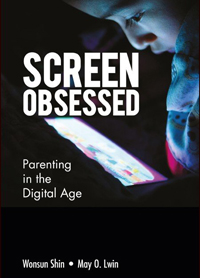
W. Shin and M. Lwin Screen Obsessed: Parenting in the Digital Age. World Scientific, 2019.
Screen-obsessed: Parenting in the Digital Age is the first book solely focusing on parental supervision of children’s media use. This book distills important information regarding how parents can effectively guide their offspring living in the multimedia environment. This book discusses an extensive range of theories, issues, and subjects of parental mediation. Readers will discover how parental mediation works, new and traditional theoretical facets, and how this knowledge can be applied in various settings pertinent to the family.
Journal articles 2019
- Glade, J. (2019). “Caught between empire and occupation: censorship, deimperialization, and Koreans in postwar Japan,” in Inter-Asia Cultural Studies, 20(3), pp. 397-413
- Kim, H. M. and O’Connor, K. (2019). “Foreign Direct Investment Flows and Urban Dynamics in a Developing Country: A Case Study of Korean Activities in Suzhou, China,” in International Planning Studies 24(2), pp. 125-139
- Lee, E., Avgar, A., Park, W. and Choi, D. (2019). “The dual effects of task conflict on team creativity: Focusing on the role of team-focused transformational leadership,” International Journal of Conflict Management, 30(1), pp. 132-154.
- Song, J. and Bell, M. (2019). “North Korean secondary asylum in the UK,” in Migration Studies 7(2), pp. 160-179
- Song, J. and Denney, S. (2019). “Studying North Korea through North Korean migrants: lessons from the field,” in Critical Asian Studies 51(3), pp. 451-466
- Yi, C. and Glade, J. (2019). “The Politics of Passing in Zainichi Cultural Production,” in Azalea: Journal of Korean Literature and Culture, 12(1), pp. 235-256
Address
Korean Studies Research Hub
Room 207, Asia Institute
Sidney Myer Asia Centre (Building 158)
761 Swanston Street
University of Melbourne, VIC 3010
Australia
Phone: +61 3 9035 8852